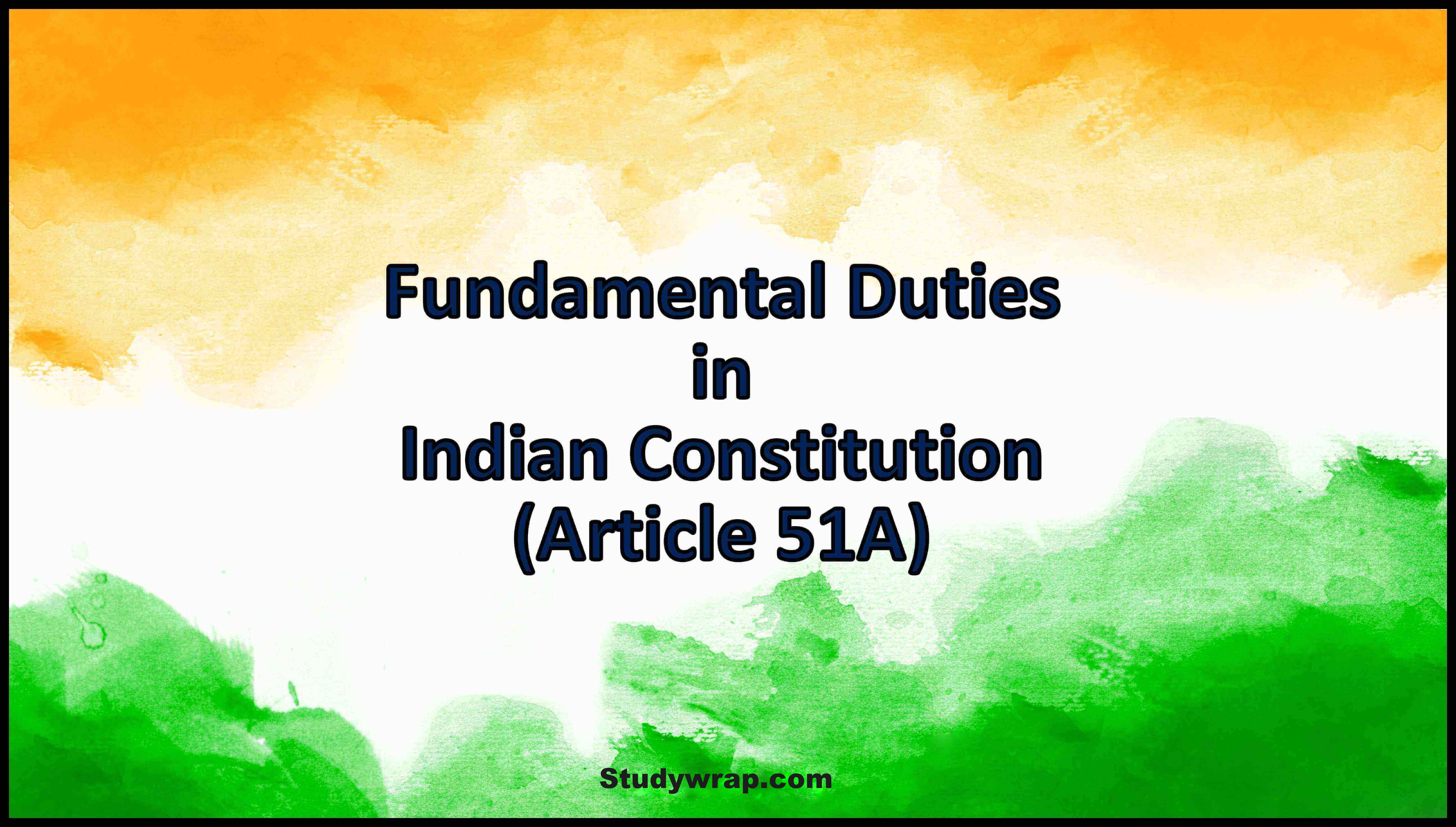Polity
Fundamental Duties (Article 51A) in Indian Constitution
Fundamental Duties
(Article 51A of Part IV A) 227
Table of Contents
- Source – USSR
- The framers of constitution did not added the fundamental duties to the constitution originally.
- Swaran Singh committee recommended 8 Fundamental Duties.
- 42nd Constitutional Amendment Act added 10 Fundamental Duties in constitution.
- Fundamental Duties for citizens are in nature of a code of conduct.

Swaran Singh Committee, 1976
- In 1976, Government set up Sardar Swaran Singh committee to make recommendation on Fundamental duties. (need felt during the Internal Emergency 1975-1977)
Recommendations of Committee
-
- The committee recommended –
-
- Inclusion of Fundamental duties as a separate chapter in constitution.
- Stressed that citizens should become conscious to perform their duties with their rights.
- The committee recommended inclusion of 8 duties but with the 42nd amendment act 10 duties were added.
- Some other recommendation includes –
- Parliament can impose penalty or punishment as it may consider appropriate for noncompliance of any duties.
- No law for such punishment and /or penalty can be questioned in any court.
- Duty to pay taxes should also be Fundamental duty of Citizen.
- These recommendations were not accepted by the Government, hence, they were not incorporated in the Constitution.
-
- The committee recommended –
Result
-
- 42nd Constitutional Amendment Act, 1976 which added Part IV-A to the constitution.
- It contains Article 51A only which describes the fundamental duties.
List Fundamental Duties
It shall be the duty of every citizen of India—
-
- to abide by the Constitution and respect its ideals and institutions, the National Flag and the National Anthem;
- to cherish and follow the noble ideals which inspired our national struggle for freedom;
- to uphold and protect the sovereignty, unity and integrity of India;
- to defend the country and render national service when called upon to do so;
- to promote harmony and the spirit of common brotherhood amongst all the people of India transcending religious, linguistic and regional or sectional diversities, to renounce practices derogatory to the dignity of women;
- to value and preserve the rich heritage of our composite culture;
- to protect and improve the natural environment including forests, lakes, rivers and wild life, and to have compassion for living creatures;
- to develop the scientific temper, humanism and the spirit of inquiry and reform;
- to safeguard public property and to abjure violence;
- to strive towards excellence in all spheres of individual and collective activity so that the nation constantly rises to higher levels of endeavour and achievement.
- To provide opportunities for education to his child or, as the case may be, ward between the age of six and fourteen years. (Added by the 86th Constitutional Amendment Act, 2002.)
Features of Fundamental Duties
-
- Some are moral duties while some are civic duties.
- Essentially contain codification of tasks integral to the Indian way of life.
- Confined to citizens only and not to the foreigners.
- Non-justiciable in Nature. Cannot be enforced by the courts.
Criticism of Fundamental Duties
-
- List of Duties is not exhaustive as it do not cover some important duties such as casting votes, paying taxes etc.
- Some of the duties are vague, ambiguous and difficult to be understand by common man.
- The critics as a code of moral precepts due to their non-justiciable character.
- Critics described the Fundamental Duties as Superfluous because even if they were not mentioned in the constitution than also the citizen would perform them.
- Critics mention that addition of Fundamental Duties as appendage in Part IV has reduced their value and Significance.
Significance of Fundamental Duties
-
- Serve as a reminder to the citizens that while enjoying their rights, they should also be conscious of duties they owe to their country, their society and to their fellow citizens.
- Serve as a warning against the anti-national and antisocial activities.
- Serve as a source of inspiration for the citizens and promote a sense of discipline and commitment among them.
- Help the courts in examining and determining the constitutional validity of a law.
- Enforceable by law. Hence, the Parliament can provide for the imposition of appropriate penalty or punishment for failure to fulfil any of them.
- Indra Gandhi, then the Prime Minister of India, justified the inclusion of Fundamental Duties in the Constitution for the strengthening of democracy.
- This is clearer with the addition of one more Fundamental Duty in 2002 by the 86th Amendment Act.
So, this post was all about Fundamental Duties (Article 51A) in Indian Constitution.
You can read about Fundamental Rights and about DPSP and other notes on Indian Polity Here.
In the Next Post (Click Here), we will discuss about How Amendment of Indian Constitution can be done.

